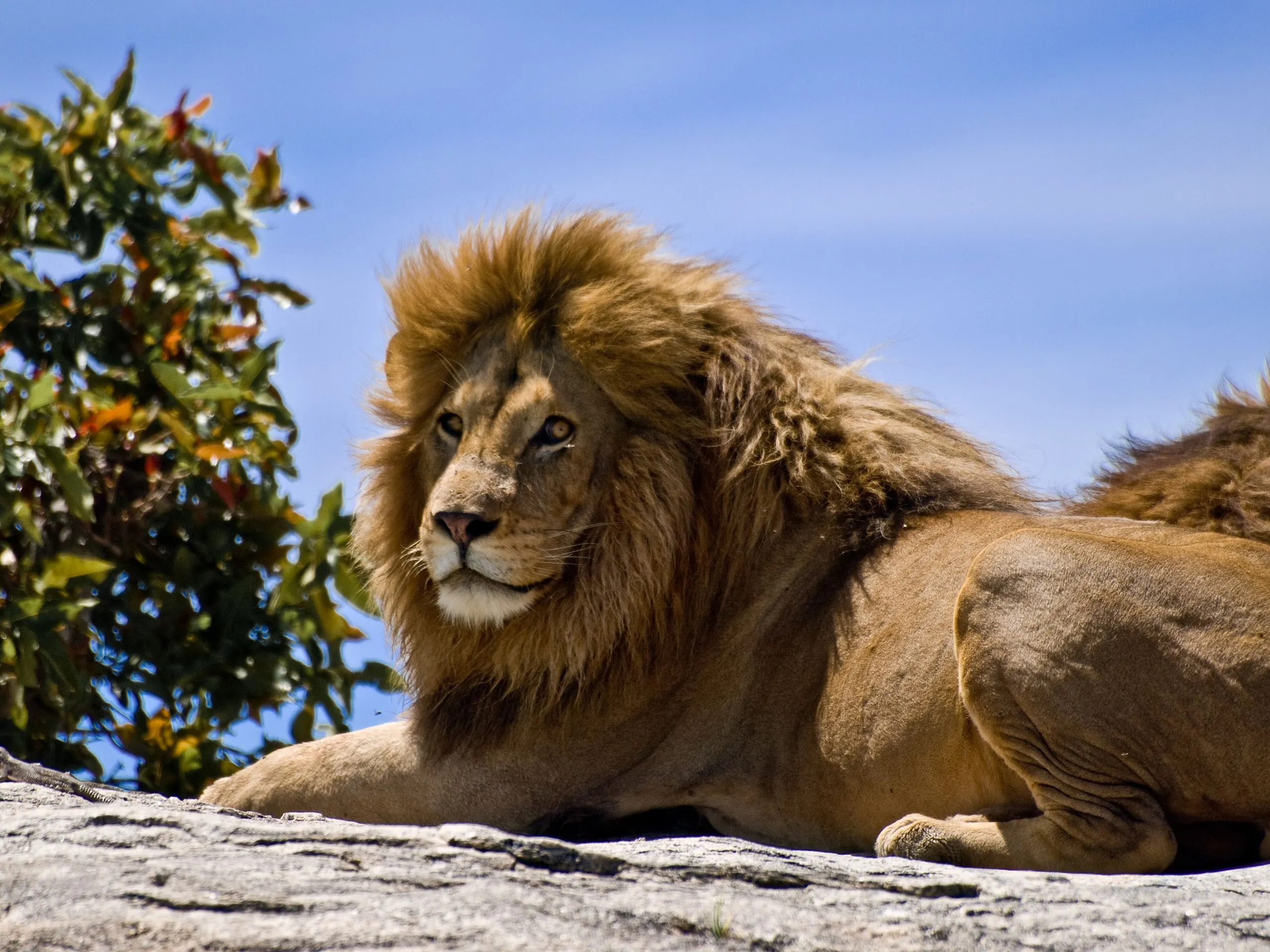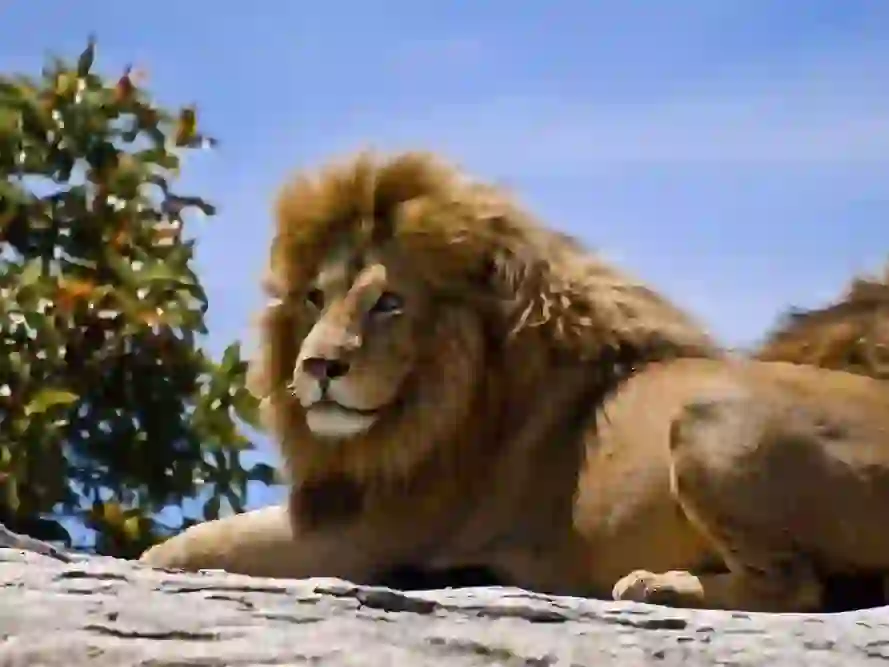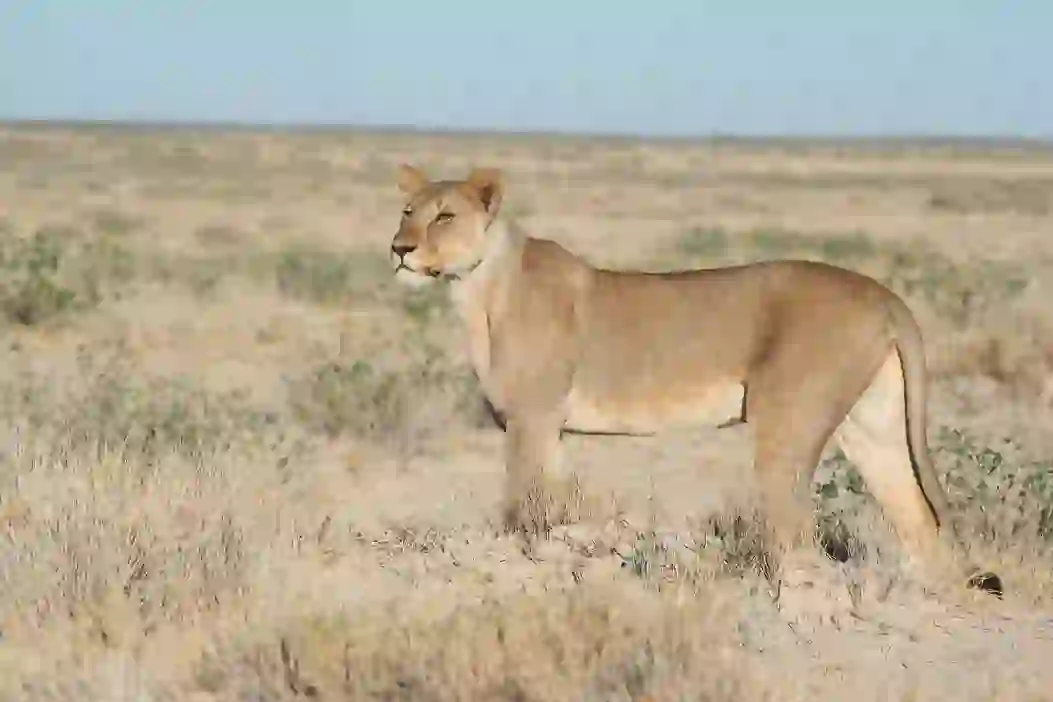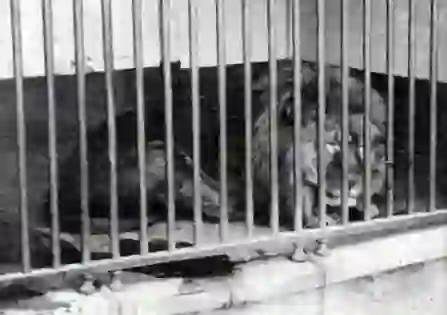
Cape Lion
Cape Lion
Cape Lion
The Cape lion, a phantom king that once reigned over the Cape region of South Africa. These lions, with their massive size and jet-black manes, held a captivating presence. However, they disappeared from the Earth in the late 19th century. Let's delve into the mysteries of the extinct Cape lion and retrace their steps through history.
Cape Lion Basic Infomation

| Property | Value |
|---|---|
| Scientific Name | Panthera leo melanochaita |
| Taxonomic Status | SUBSPECIES |
| Rank | Subspecies |
| Vernacular Names | South African Cape Lion |
| Kingdom | Animalia |
| Phylum | Chordata |
| Class | Mammalia |
| Order | Carnivora |
| Family | Felidae |
| Genus | Panthera |
| Habitats | Cape region of South Africa (before extinction) |
| Descriptions | The Cape lion was a subspecies of lion that once lived in the Cape region of South Africa. It is believed to have gone extinct in the late 19th century, but a few taxidermied specimens can be found in museums. |
| Conservation Status | EXTINCT |

Size
Their body length is estimated to have been about 2.7 to 3.3 meters (including tail), and males are estimated to have weighed around 220 to 250 kilograms, making them larger than other lions. There are no detailed records regarding the size of females.

Lifespan
While there are no precise records, it is estimated that they lived for about 10 to 14 years in the wild.

Distribution
They were once widely distributed in the Cape region of South Africa, particularly around Cape Town and on the slopes of Table Mountain.
Cape Lion Q&A

What kind of lion was the Cape lion?
The Cape lion is said to have been the largest and had the darkest mane of all lion subspecies.
Their mane covered not only their necks, but also their shoulders and bellies, giving them the appearance of wearing a black cloak. They also had rounder ears and shorter legs than other lions.

What did Cape lions eat?
Cape lions were carnivores and primarily preyed on large herbivores such as Cape buffalo, zebra, wildebeest, oryx, and springbok.
They sometimes hunted alone, but they often hunted in cooperative groups of two or three individuals. They would stalk their prey and then attack in a sudden burst of speed. They used their sharp teeth and claws to kill their prey. They were also known to steal kills from other predators.

Why did they go extinct?
The extinction of the Cape lion was primarily due to human activities.
Starting in the 17th century, the number of European settlers increased, and their grasslands and forest habitats were converted into farmland and pasture. They were also targeted for extermination as pests due to attacks on livestock, and many lions were killed.
Furthermore, they were targeted in sport hunting, and their skins and skulls were highly valued as trophies. These combined factors led to the extinction of the Cape lion in the wild by the 1860s.

[Quiz!] Were Cape lions kept in zoos?
Yes, Cape lions were kept in European zoos in the 19th century. However, animal husbandry practices were not as advanced back then, and many lions died from illness and stress.
It has also been suggested that the lions kept in zoos may not have been pure Cape lions but hybrids with other subspecies.

[Quiz!] Are Cape lions truly extinct?
Although Cape lions are considered extinct in the wild, there are a few taxidermied specimens of Cape lions remaining in museums around the world.
By extracting and analyzing DNA from these specimens, we may be able to learn more about the genetic information of Cape lions. In recent years, there have also been reports of lion sightings in remote areas of South Africa that resemble Cape lions. Perhaps they are still surviving somewhere.

[Quiz!] Can the Cape lion be resurrected?
In recent years, research has been progressing on using biotechnology to resurrect extinct animals.
The Cape lion is considered a potential candidate for such efforts. If it were possible to bring back the Cape lion, it would be a significant step for biodiversity conservation. However, there are also many challenges involved in resurrecting extinct animals, such as ethical considerations and the potential impact on ecosystems. Therefore, careful discussion is needed.

Would you like to become a part of the 'Animalbook.jp'?
Turn your knowledge into Q&A and share it with the world. ※Publication will be activated after purchase. Let's share information together!
Cape Lion Type of List

Causes of the Cape Lion's Extinction
- Habitat destruction: Conversion to farmland and pastures, urbanization
- Extermination as pests: Attacks on livestock
- Sport hunting: Demand for trophies
- Capture for zoos: Display purposes
Information
Congratulations! You are the first commenter!

Create Your Favorite List!
Cape Lion
Save the animals you love! Build your own list to quickly revisit your favorites later.

Would you like to leave a comment?
※Please note: This is for the purchase of rights to post comments within the article.
Find Your Favorites!
Our shop offers a unique and attractive selection of goods themed around various animals.
Cape Lion References
Cape Lion Introduction of media used

See page for author, Public domain, via Wikimedia Commons

Help Enrich Our Animalbook.jp with Your Media!
We are constantly looking to expand and enrich our Animalbook.jp with amazing photos and videos of animals. If you have any media that you'd like to share, please contribute and help us showcase the beauty and diversity of the animal kingdom. Your submissions will be credited and featured in our encyclopedia, reaching a wide audience of animal lovers.


















